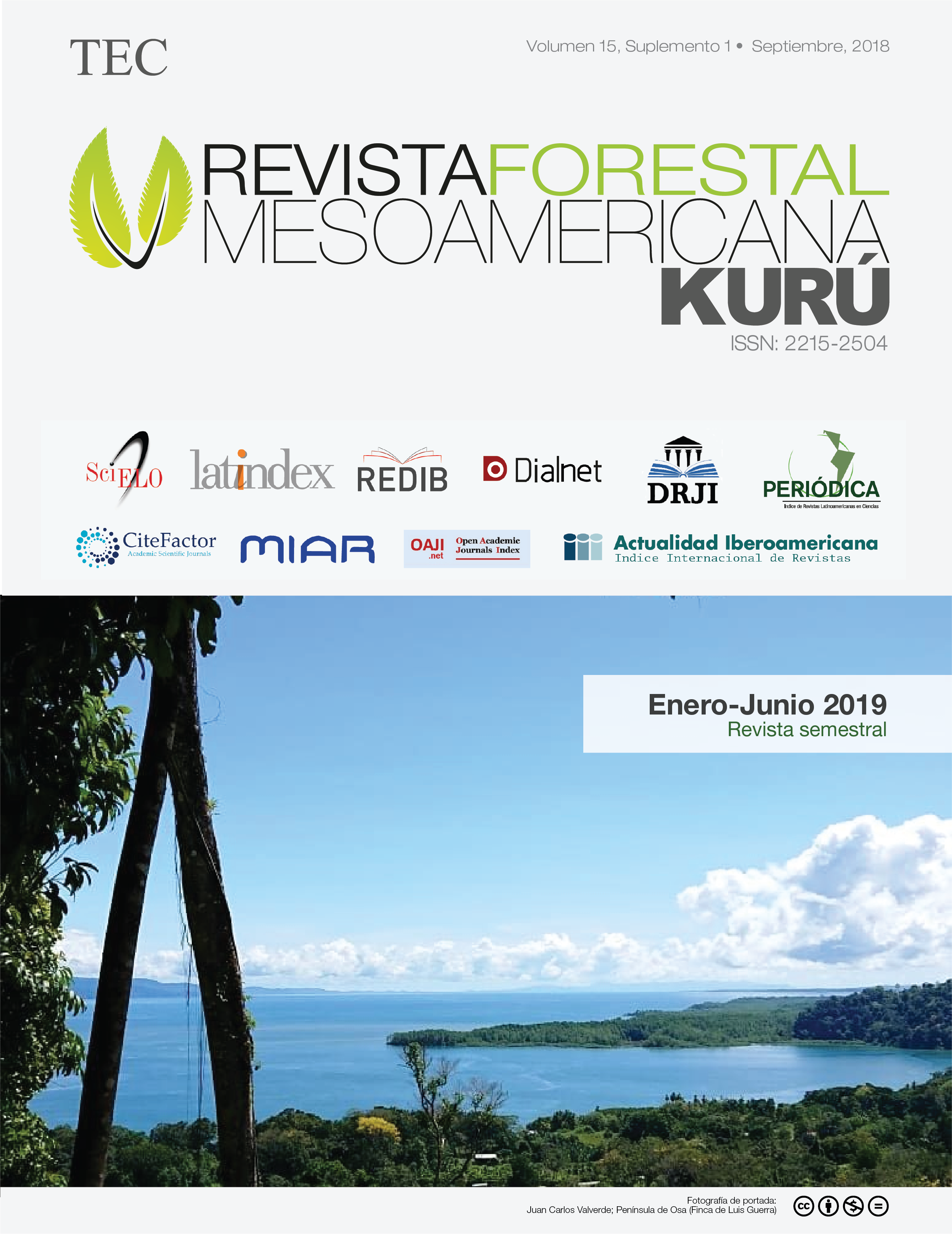Evaluation of the behavior of clones of Tectona grandis L. f. in vertisol soils of Nicoya Peninsula, Costa Rica
Main Article Content
Abstract
A Tectona grandis L. f. (Teak) genetic test consisting of 40 clones and one control (24 ramets per clone), distributed in a complete randomized block design, with six repetitions and two pairs of plants per clone per block (parcel), was evaluated. The trial was established by BARCA company and the “Cooperativa de Mejoramiento Genético Forestal” (GENFORES) in August 2015, nearby Jicaral, Nicoya Peninsula, Costa Rica. The soil order in the test site corresponds to a vertisol order, which is scarcely used for forest plantations due to its high percentage of expandable clays (type 2:1 montmorillonitic) that produce the formation of dynamic cracks during the dry season. At 8 months of age was conducted the first evaluation of this clonal test, where the collar diameter and total height of each individual was quantified, in addition to evaluating the condition of forking, presence of sprouts, survival and phytosanitary status of each plant. The collected data was analyzed through BLUP/REML procedures in SELEGEN software to obtain all genetic parameters. We obtained high results of mean clonal heritability in collar diameter (h2mc = 83 %), total height (h2mc = 80 %) and survival (h2mc = 74 %). Accuracy of the genetic parameters registered values higher than 0.86 in all traits and parameters. At 8 month old genotypes 2, 9, 13, 21, 32 and 33 exhibited a tolerance tendency to vertisols soils. Meanwhile, clone 34 registered the worst adaptation in all clonal collection. The survival recorded was 84 % that evidence the adaptation potential for some genotypes to this soil types in the region. Through selecting programs, it is possible to identify genetic materials able to adapt and produce acceptable production results in this type of soils.
Article Details
Revista Forestal Mesoamericana Kurú is licensed under CC BY-NC-ND 4.0
Al enviar un artículo a la Revista Forestal Mesoamericana kurú (RFMK), los autores ceden los derechos patrimoniales a la editorial de la RFMK una vez su manuscrito haya sido aprobado para publicación, autorizando a la RFMK a editarlo, reproducirlo, distribuirlo, y publicarlo en formato físico y/o electrónico. La titularidad de los derechos morales sobre los trabajos objeto de esta cesión seguirá perteneciendo a los autores.

